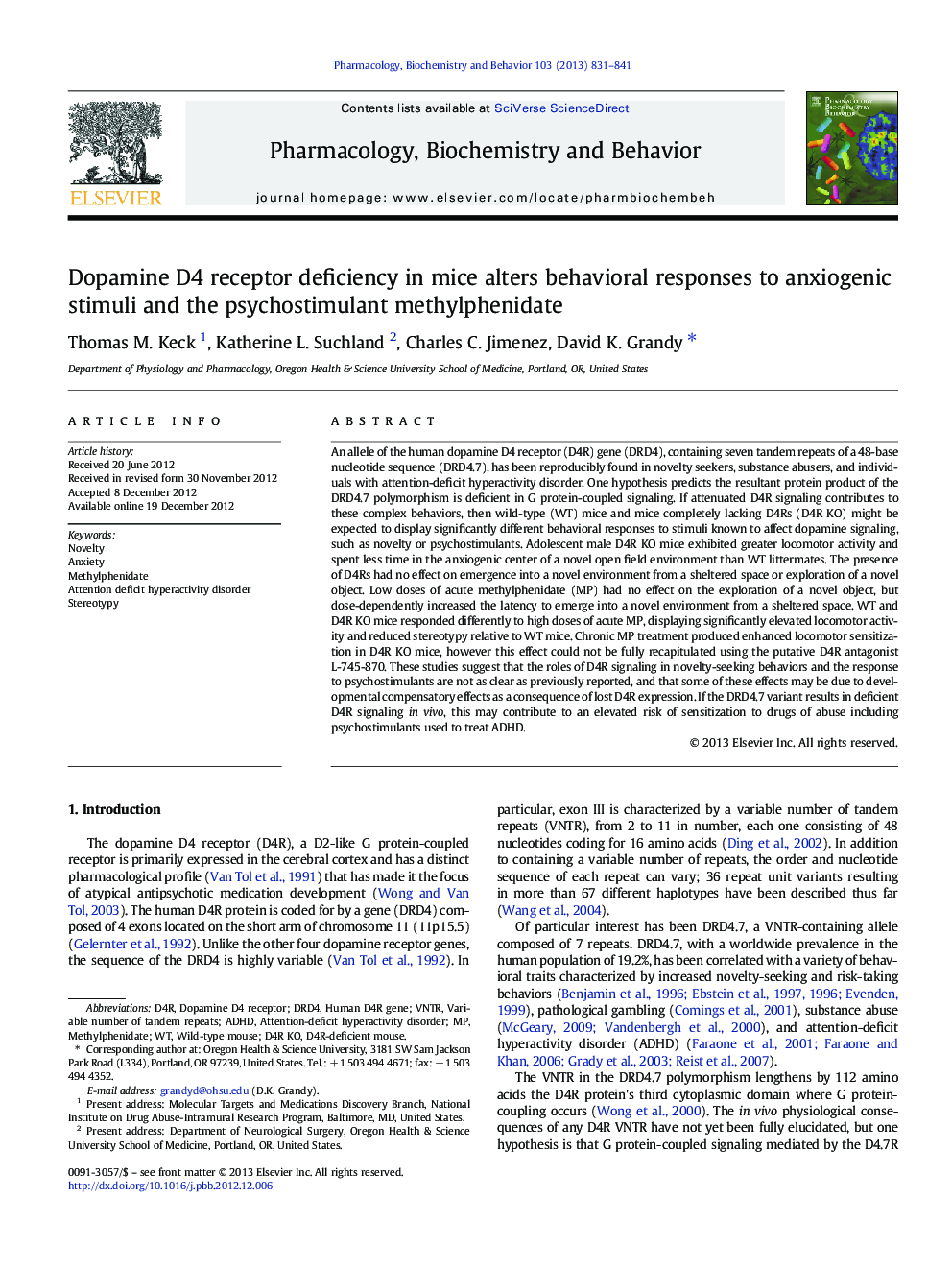| کد مقاله | کد نشریه | سال انتشار | مقاله انگلیسی | نسخه تمام متن |
|---|---|---|---|---|
| 2013056 | 1067079 | 2013 | 11 صفحه PDF | دانلود رایگان |

An allele of the human dopamine D4 receptor (D4R) gene (DRD4), containing seven tandem repeats of a 48-base nucleotide sequence (DRD4.7), has been reproducibly found in novelty seekers, substance abusers, and individuals with attention-deficit hyperactivity disorder. One hypothesis predicts the resultant protein product of the DRD4.7 polymorphism is deficient in G protein-coupled signaling. If attenuated D4R signaling contributes to these complex behaviors, then wild-type (WT) mice and mice completely lacking D4Rs (D4R KO) might be expected to display significantly different behavioral responses to stimuli known to affect dopamine signaling, such as novelty or psychostimulants. Adolescent male D4R KO mice exhibited greater locomotor activity and spent less time in the anxiogenic center of a novel open field environment than WT littermates. The presence of D4Rs had no effect on emergence into a novel environment from a sheltered space or exploration of a novel object. Low doses of acute methylphenidate (MP) had no effect on the exploration of a novel object, but dose-dependently increased the latency to emerge into a novel environment from a sheltered space. WT and D4R KO mice responded differently to high doses of acute MP, displaying significantly elevated locomotor activity and reduced stereotypy relative to WT mice. Chronic MP treatment produced enhanced locomotor sensitization in D4R KO mice, however this effect could not be fully recapitulated using the putative D4R antagonist L-745-870. These studies suggest that the roles of D4R signaling in novelty-seeking behaviors and the response to psychostimulants are not as clear as previously reported, and that some of these effects may be due to developmental compensatory effects as a consequence of lost D4R expression. If the DRD4.7 variant results in deficient D4R signaling in vivo, this may contribute to an elevated risk of sensitization to drugs of abuse including psychostimulants used to treat ADHD.
Figure optionsDownload as PowerPoint slideHighlights
► Adolescent D4R KO mice do not display decreased novelty-seeking behavior but do have a heightened sensitivity to anxiogenic stimuli.
► D4R KO mice have increased locomotion and decreased stereotypy in response to high doses of the psychostimulant methylphenidate.
► D4R KO mice have increased locomotor sensitization to chronic methylphenidate that can only partially be explained by the loss of D4R signaling.
Journal: Pharmacology Biochemistry and Behavior - Volume 103, Issue 4, February 2013, Pages 831–841